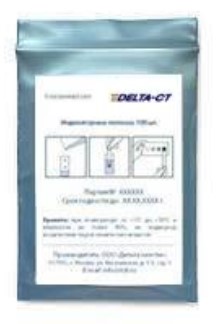Sweden has named the conditions for a possible ban on gas imports from Russia

Sweden is considering introducing a ban on imports of Russian liquefied natural gas (LNG) if such a measure is not included in the new EU sanctions package, the country's Energy Minister Ebba Busch said in an interview with Bloomberg .
“If the sanctions package does not meet its goals, then we are ready to act on our own,” she said. “This is not optimal, but we are considering the possibility of finding ways to further stop and impose sanctions on Russian imports, in particular LNG.”
Bush did not specify how the Swedish government will regulate energy imports from Russia. At the same time, the Energy Minister called the number of countries that are ready to individually ban Russian LNG supplies insufficient. EU members must take into account the bloc's energy security, the agency notes.
In April, Swedish Foreign Minister Tobias Billström announced that the European Union was going to include a ban on Russian LNG supplies in the 14th package of sanctions. According to analysts at S&P Global Commodity Insights, its share of total EU imports in 2023 was 13%, compared to 40% in 2021. Reuters and EUobserver wrote that Brussels is considering the possibility of banning the transshipment of Russian LNG in the European Union (for supplies to non-European countries) and imposing sanctions on three projects for the production of this type of fuel (Arctic LNG-2, in Ust-Luga, Leningrad region and Murmansk ). Hungary did not support these measures. Hungarian Foreign Ministry spokesman Mate Maczolay said Budapest considers “all sanctions affecting the energy sector to be harmful, as they significantly limit Europe’s competitiveness, lead to higher prices and risks associated with [energy] supplies.”
Bush cited increased EU investment in its energy sector among opportunities to persuade Budapest and criticized the European Investment Bank (EIB) for its lack of concessional financing. “The EIB needs to answer the question of why it is actually making European competitiveness a major issue,” she said. “Because this is the effect that is created.”
Russia considers the sanctions of Western countries illegal. The Kremlin considered the EU’s plans to ban LNG imports as an attempt to “squeeze Russia out of energy markets,” and the main interest was the United States . Press Secretary of the Russian President Dmitry Peskov noted that “for end consumers, primarily the industrial sectors of Europe, this will mean more expensive gas.”



























































